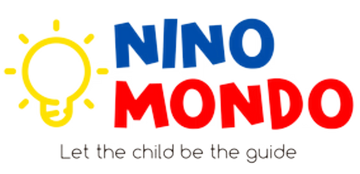
Benefits of Montessori Toys for Early Childhood Development
For every parent, the foremost focus is providing a healthy and nurturing environment for their children to develop and grow in the best possible way. Montessori philosophy has played a pivotal role in holistic learning for quite some time, and Montessori toys are integral to the approach.
These toys are not just playthings; they are powerful tools that can significantly impact a child's cognitive, emotional, and physical development. They are meticulously crafted to stimulate young minds and nurture essential skills. With this blog, we will help you understand how these toys are beneficial for your children.
Encouraging Independence
Montessori toys are designed to promote independent play and exploration. They are intentionally designed to allow children to engage in activities at their own pace, fostering a sense of autonomy and self-reliance from an early age.
These toys are typically simple and self-correcting, meaning that children can use them without constant adult intervention.
Developing Fine Motor Skills
Many Montessori toys focus on refining fine motor skills, such as grasping, pinching, and twisting. Activities like sorting, stacking, and threading not only enhance hand-eye coordination but also lay the foundation for more complex tasks later in life.
Furthermore, precision can be enhanced through activities like picking up small objects or using tweezers to transfer items between containers. These help children develop the small muscles in their hands and fingers, improving their dexterity and coordination.
You can check our range of Montessori toys for developing motor skills here. Using Montessori baby principles, we've created toys that provide simple, engaging toys.
Promoting Concentration and Focus
Montessori toys are thoughtfully designed to capture a child's attention and encourage deep concentration. These toys often have a simple, minimalist design, free from distractions, allowing children to immerse themselves in the task entirely.
The Montessori philosophy encourages the use of materials that help children stay focused on the task at hand for extended periods. Therefore, as a brand dedicated to the Montessori learning style, we have carefully selected and arranged our Montessori toys to be aesthetically pleasing and inviting.
Fostering Creativity and Imagination
Unlike conventional toys that have pre-determined functions, Montessori toys are open-ended, encouraging children to use their imagination and creativity. This freedom to explore and create helps develop innovative thinking and problem-solving skills.
This is also why we have tried to provide a wide variety of toys that encourage your child to lead. Nino Mondo believes in the philosophy that the child should be the guide.

Enhancing Cognitive Development
Montessori toys are often designed to teach specific concepts through hands-on exploration, such as math, language, or science. This is why they are rich in educational value, offering opportunities to learn numbers, letters, shapes, and colours through play.
For example, the Peg Board Stacking from our Play and Learn bundle is designed to support early math skills. You can check it out here.
These toys stimulate cognitive development and lay a strong foundation for academic learning in the children as encouraged by the Montessori philosophy.
Encouraging Sensory Exploration
The toys are made from natural materials like wood, metal, and fabric, which provide a variety of textures, colours, and shapes for children to explore.
The Montessori toys are designed to provide a multi-sensory experience for children. This sensory-rich environment promotes sensory exploration and helps in refining sensory processing skills. Our toys are designed to encourage the Montessori baby to explore their surroundings at their own pace.
This blog post includes some of the Montessori philosophy inspired sensorial activities that your child can engage in with our toys.
Instilling a Love for Learning
Montessori toys are designed to make learning fun and engaging, helping children develop a positive attitude towards learning from a young age. You will not regret introducing them to your children from a young age, as they are specifically designed to promote early development.
These toys help instill in children a lifelong love for learning by sparking curiosity and a thirst for knowledge. The Montessori toddler who has experienced the Montessori philosophy is bound to remain curious and have a thirst for lifelong learning.
Promoting Social Skills
While Montessori toys are often associated with independent play, they also offer opportunities for social interaction. Activities like sharing, taking turns, and collaborating are essential skills children can develop through these toys.
For example, a set of building blocks can be used collaboratively to build structures, encouraging children to communicate and cooperate with each other.
You can check our play-and-learn bundles for various age groups here.
Montessori is a great way to start supporting your child right from the very beginning and it is one of the ways the Montessori toddler will grow into a smart and independent adult.
Frequently Asked Questions
1. What are Montessori toys?
Montessori toys are educational toys designed based on the principles of the Montessori method, which emphasizes independence, hands-on learning, and self-directed play.
2. How do Montessori toys benefit early childhood development?
Montessori toys promote independence, develop fine motor skills, enhance concentration and focus, foster creativity, imagination, and encourage sensory exploration.
3. Are Montessori toys only for children in Montessori schools?
No, Montessori toys can be beneficial for all children, regardless of whether they attend a Montessori school. These toys are designed to support holistic development and can be used by children in any educational setting, including homes.
4. Can Montessori toys be used for children with special needs?
Yes, Montessori toys can be adapted to meet the needs of children with special needs. The open-ended nature of these toys allows for flexibility in how they are used, making them suitable for a wide range of developmental abilities.
